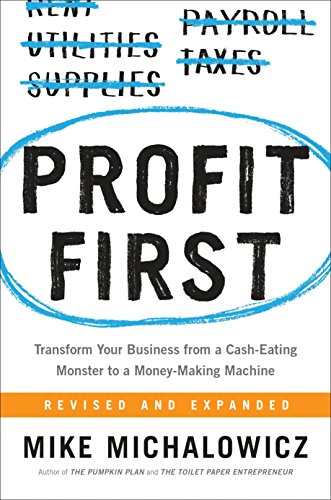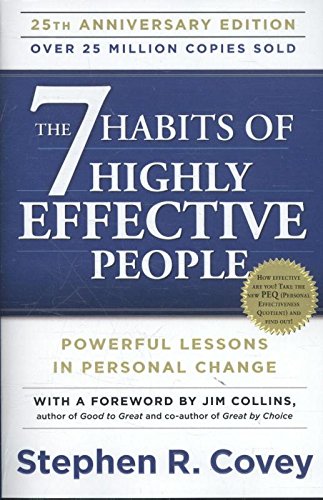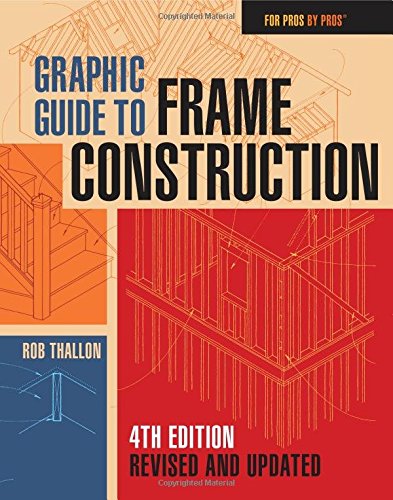(Part 2) Top products from r/Carpentry
We found 21 product mentions on r/Carpentry. We ranked the 168 resulting products by number of redditors who mentioned them. Here are the products ranked 21-40. You can also go back to the previous section.
21. BINO 8-Pack Cabinet Knobs - .75" Diameter (19mm), Matte Black - Dresser Knobs for Dresser Drawer Knobs and Pulls Knobs and Pulls Handles
Sentiment score: 1
Number of reviews: 1
PERFECT FOR DECORATING: Round .75” knobs with a matte black finish offer a unique way to brighten up your outdated furniture and bring a personal touch to your homeAPPLICATION: Perfect size for cabinets, dresser drawers, cupboards, and bookcases. Give your furniture a sparkly new look!SEAMLESS INS...
 Show Reddit reviews
Show Reddit reviews22. The Very Efficient Carpenter: Basic Framing for Residential Construction (For Pros / By Pros)
Sentiment score: 1
Number of reviews: 1
 Show Reddit reviews
Show Reddit reviews23. Profit First: Transform Your Business from a Cash-Eating Monster to a Money-Making Machine
Sentiment score: 1
Number of reviews: 1
PORTFOLIO
 Show Reddit reviews
Show Reddit reviews24. Tools of the Trade: The Art and Craft of Carpentry
Sentiment score: 1
Number of reviews: 1
Used Book in Good Condition
 Show Reddit reviews
Show Reddit reviews25. Rough Framing Carpentry
Sentiment score: 0
Number of reviews: 1
Rough Framing Carpentry
 Show Reddit reviews
Show Reddit reviews26. Identifying Wood: Accurate Results With Simple Tools
Sentiment score: 0
Number of reviews: 1
Used Book in Good Condition
 Show Reddit reviews
Show Reddit reviews27. Roof Framer's Bible: The Complete Pocket Reference to Roof Framing 2nd Edition
Sentiment score: 1
Number of reviews: 1
 Show Reddit reviews
Show Reddit reviews28. The Elements of Building: A Business Handbook For Residential Builders & Tradesmen
Sentiment score: 0
Number of reviews: 1
 Show Reddit reviews
Show Reddit reviews29. Building Construction Illustrated
Sentiment score: 0
Number of reviews: 1
John Wiley Sons
 Show Reddit reviews
Show Reddit reviews31. The 7 Habits of Highly Effective People: Powerful Lessons in Personal Change
Sentiment score: 1
Number of reviews: 1
The 7 Habits of Highly Effective People: Powerful Lessons in Personal Change
 Show Reddit reviews
Show Reddit reviews32. Graphic Guide to Frame Construction: Fourth Edition, Revised and Updated (For Pros by Pros)
Sentiment score: 1
Number of reviews: 1
Taunton Pr
 Show Reddit reviews
Show Reddit reviews33. Running a Successful Construction Company (For Pros, by Pros)
Sentiment score: 1
Number of reviews: 1
ISBN13: 9781561585304Condition: NewNotes: BRAND NEW FROM PUBLISHER! 100% Satisfaction Guarantee. Tracking provided on most orders. Buy with Confidence! Millions of books sold!
 Show Reddit reviews
Show Reddit reviews34. Building a Shed (Taunton's Build Like a Pro)
Sentiment score: 1
Number of reviews: 1
 Show Reddit reviews
Show Reddit reviews35. Illustrated Cabinetmaking: How to Design and Construct Furniture That Works (Fox Chapel Publishing) Over 1300 Drawings & Diagrams for Drawers, Tables, Beds, Bookcases, Cabinets, Joints & Subassemblies
Sentiment score: 0
Number of reviews: 1
Illustrated Cabinetmaking How to Design and Construct Furniture That Works
 Show Reddit reviews
Show Reddit reviews36. Markup & Profit: A Contractor's Guide
Sentiment score: 1
Number of reviews: 1
Used Book in Good Condition
 Show Reddit reviews
Show Reddit reviews37. Modern Carpentry
Sentiment score: 1
Number of reviews: 1
Used Book in Good Condition
 Show Reddit reviews
Show Reddit reviews38. Graphic Guide to Frame Construction: Third Edition, Revised and Updated (For Pros By Pros)
Sentiment score: 1
Number of reviews: 1
 Show Reddit reviews
Show Reddit reviews


Off the top, I have to say that I really don't like the tone of your post, it shows a lack of respect and ignorance for how much work and capital the owner of a company has to put in. Being good at business doesn't mean that you're the best technical carpenter or even a carpenter at all. It's like the typical restaurant feud where the kitchen staff doesn't appreciate what the wait staff do and visa-versa, while not realizing that one would not exist without the other.
Sales and dealing with clients is much more difficult than most give credit for. Knowing how to price things to make money, being able to work with all different types of personalities and keeping a level head under very stressful situations are skills we don't learn in the field. Not to mention the financial risk on every project, accounting, advertising, driving all over hells half acre to price jobs you might not get...etc.
All this to say, take a little time to research and learn what goes into the front end of a business that is successful. A few books you might want to check out:
1)Markup and Profit: A Contractors Guide by Michael Stone
2) The 7 Habits of Highly Effective People: Powerful Lessons in Personal Change by Stephen R. Covey
3) Profit First: Transform Your Business from a Cash-Eating Monster to a Money-Making Machine by Mike Michalowicz
4) Running a Successful Construction Company by David Gerstel
5) How to Win Friends & Influence People by Dale Carnegie
Most important though is to find an accountant and learn what goes into accounting. Of all the things that I've seen take down really good carpenters going out on their own, accounting is #1. They don't put money away to pay taxes end up in a robbing peter to pay paul situation, or just don't know what their overhead is to charge appropriately to cover it as well as make a profit and cover their own wage.
As far as how much capital to start out with, I'd say 6 months salary. It's always a good idea to have a least 6 months worth of operating expenses as a capital reserve even while operating. It makes you less likely to be put in situations where you HAVE to work and end up taking jobs you shouldn't.
I'm fairly new to the trade. Been in for about a year now. The way I got in was by looking on craigslist for carpenter apprentices. A local contractor picked me up and I've been on the job learning since. It's very rewarding, expecially when you finish a project or big job, and it is very difficult at times too. Moving stacks of lumber around and working outside on roofs when it's over 100 out isn't fun. I would say with my company we dabble in many things from framing, finish work, remodels, and custom projects. I've heard of guys on this sub who had been working on prefab stuff in shops hoping to get out and work on real homes, but there are plenty of guys who love that stuff because being inside with ac is always nice. I've heard big companies that build track homes are pretty fast paced and a lot of people leave because the pressure and stress amd repetitivness. Also, attention to detail and listening to directions are very important no matter the job. Other than that tools are #1. If you don't have the tools you're useless. Not all jobs do you provide your own tools, but if you're not with some big company you will most likely provide that on your own. You can find some pretty good lists online of general tools you should have. Skilsaw (Mag77), bags, sawsall, grinder, impact, drill, holehawg, levels, nailers, hoses and compressor are some pretty basic things you should have and have experience with. Look up "Larry Haun" when you have a chance. He has good material that you can read/watch through. Other than that listen to advice from the OGs on the job and be confident in your measurements before you cut. As long as you're willing to learn there will be someone willing to teach you. Good luck out there :)
Haven't read it but the Taunton press is a pretty legit publisher
https://www.amazon.com/Building-Shed-Tauntons-Build-Like/dp/1561589667
YouTube can bring it all together on how to execute operations and selecting and using tools.
Also building codes and construction techniques vary widely depending on where you live and with good reason. Climate, weather, seismic activity etc all determine how a structure needs to be engineered to be safe and long-standing.
Graphic Guide to Frame Construction.
I love this book. It has great tips, structures, methods, and detailed pictures to show how to accomplish what you're looking for. Also mentions code requirements. In the link above, it goes to the third edition, which is what I own.
I haven't actually used it that much on jobs because I've gone union and work mostly commercial jobs, but I've used it on some other projects for straight framing and it was great.
Here is a link for the fourth edition.
I'm taking an intro carpentry class in the evenings right now at my local high school trade school. The instructor has been in carpentry for probably 30 years and used the same textbook that we are using in the class
http://www.amazon.com/gp/product/159070648X/ref=pd_lpo_sbs_dp_ss_1?pf_rd_p=1944687582&pf_rd_s=lpo-top-stripe-1&pf_rd_t=201&pf_rd_i=1590702026&pf_rd_m=ATVPDKIKX0DER&pf_rd_r=078HJD99HRNFC695QN9Q
Tons of information, really easy to read and understand. I'd highly recommend getting it if your interested. We're learning floor framing and wall framing. I'm hoping to take his other courses later on to learn roofing, stairs, etc.
I'd check around schools in your area that offer adult education programs and see if they have some kind of intro to carpentry class.
I'd recommend getting a good introductory book, and then browse YT, there are a ton of videos on there. Anything from Taunton press in the For Pros by Pros series should be decent, like this one https://www.amazon.com/Trim-Carpentry-Pros-Editors-Homebuilding/dp/1600855024/ref=pd_sim_14_4?_encoding=UTF8&psc=1&refRID=XPTC7A0JENCDE9RHX8YX
I like your idea about the rope, but I think would be simpler and more effective to use some small cabinet knobs and a rubber band material. You could put a couple of knobs near two of corners and wrap a rubber band or hair tie around them. Space them so the band will be taut.
Here is a diagram (imagine the door is closed — knobs in red, band in black): https://imgur.com/a/wajgHCF
knob example: https://www.amazon.com/BINO-8-Pack-Cabinet-Knobs-Diameter/dp/B07VPRDQ6J
rubber band example: https://www.amazon.com/Outdoor-Preparedness-Resistant-Backpacks-Paintball/dp/B0716B9F6J
if you live in the USA is the best guide I have found to learn from zero. https://www.amazon.com/gp/product/1600852467/ref=oh_aui_detailpage_o03_s00?ie=UTF8&psc=1
also, any Books or Videos from Larry Haun, that guys is fantastic.
I really recommend the video series of how to frame a house. is 3 parts of one hour each but you will watch a master working and taking the time to describe what you as new, need to learn.
For me, I want to buy my own tools. Maybe not the case for everyone though. If someone were to read my mind though, they would buy me a 24" Crick level. It is wood instead of metal like Stabila. Typically masons use wood levels and carpenters use metal. I do both and prefer wood, plus they have an old school quality look and feel to them.
​
For a non tool idea there is a cool book that I go back and read every once and a while. It's called Tools of the Trade.
Since Larry Haun has already been recommended, a couple of my other favourites: Finish Carpentry by Gary Katz, and Rough Framing Carpentry by Mark Currie.
Carpenters often use distinct smells and grain patterns to tell woods aoart. Pine, cedar, oak, douglas-fir, hemlock, popular, ash, maple. After you have cut oak flooring for a room you will always know the smell. Most people can tell pine from cedar by smell. Same with other wood.
Wood Identification is tricky with less common woods. They use the end-grain samples from the tree to tell them apart.
Illustrated Cabinetmaking details quite a bit of furniture construction. It touches on joinery, the where and why. It covers beds, chests, kitchen cabinets (wall hanging and bases) and many more. The plans are not detailed. Most are simply a blown-up or cutaway drawing of the piece itself but the author included source information.
https://www.amazon.com/gp/aw/d/1133607365/ref=mp_s_a_1_4?ie=UTF8&qid=1494077420&sr=1-4
Carpentry 6th Edition by Floyd Vogt, just pulled this book (4th edition) out last night for reference.
Francis Ching, Building Construction illustrated https://www.amazon.com/Building-Construction-Illustrated-Francis-Ching/dp/1118458346
You will probably find this useful: The Elements of Building: A Business Handbook For Residential Builders & Tradesmen